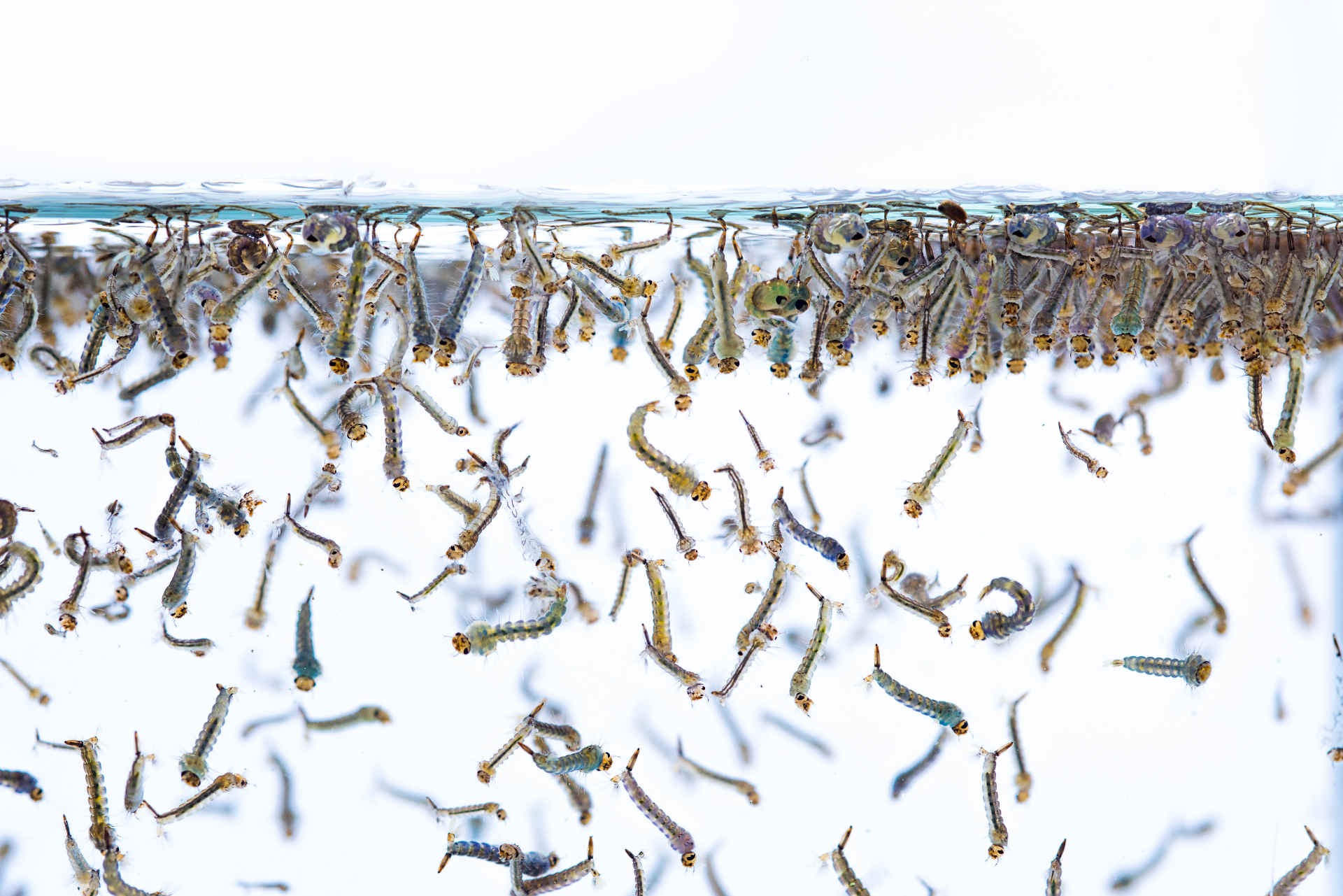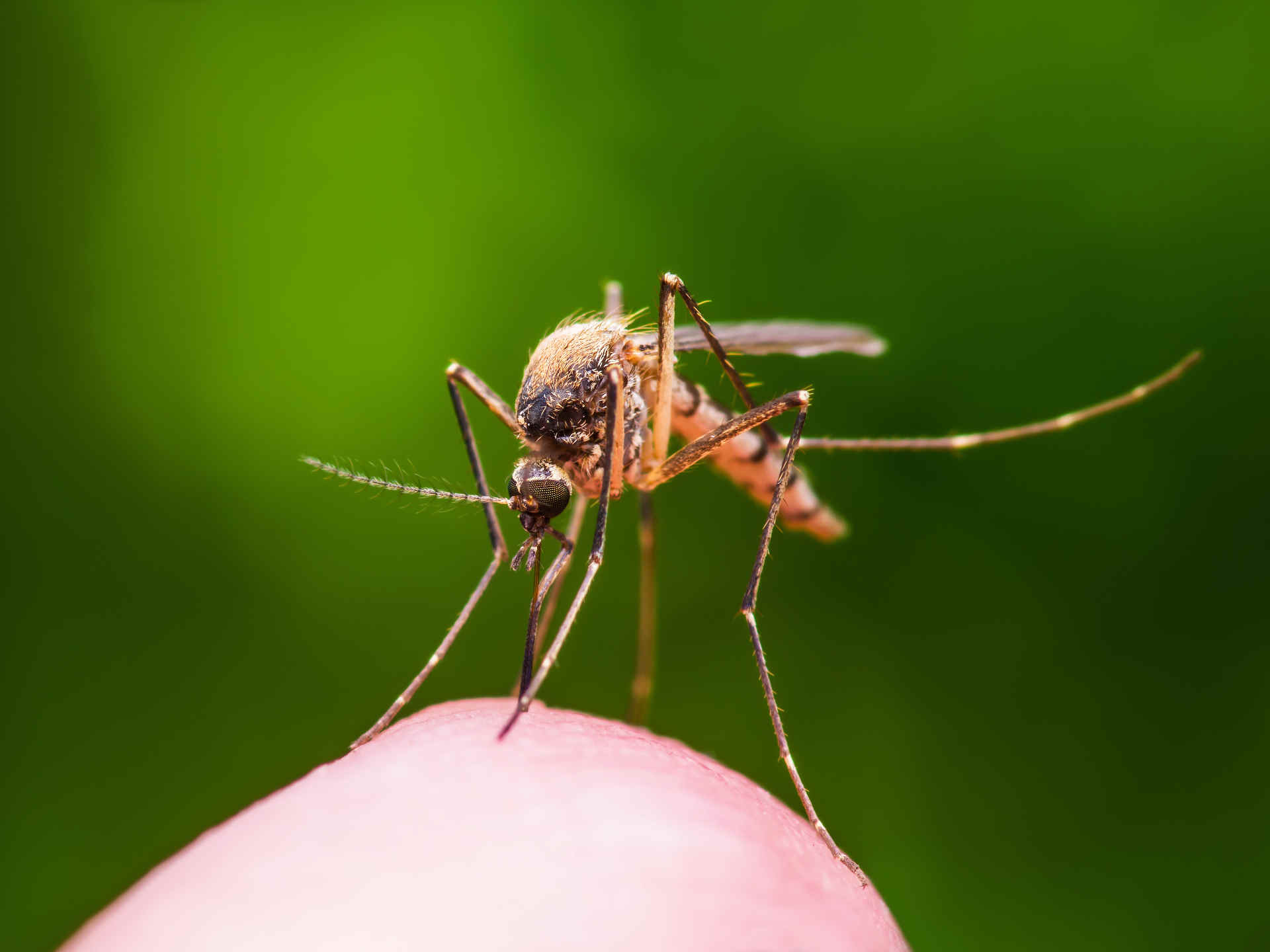Nobody wants mosquitoes around them, not even the biggest animal lover. But what helps against mosquitoes? We reveal what methods you can use to get rid of mosquitoes. Without chemicals. Without violence. And which mosquitoes can be more than just a nuisance and when…
Mosquitoes feel most comfortable at 20 to 25 degrees. Most people too. On warm, humid summer evenings you have to expect whole armies of mosquitoes. Then most people no longer feel comfortable and start waving around in a wild rage. Or spray lots of chemicals. Neither is good for a nice evening.
It's particularly unpleasant this year. The mild winter and the warm, humid summer will cause a real mosquito plague in large parts of Germany in 2024.
What to do?
Fighting mosquitoes means avoiding offspring

Basically, the avoidance strategy applies first: mosquitoes lay their eggs in large quantities in the smallest water bodies. The smallest puddle is enough for them to lay huge amounts of offspring in it.
So that the bloodsuckers have as few breeding places as possible near your own home: buckets or bowls on the balcony, the grill on the terrace, the wheelbarrow and simply Turn everything over so that no water can collect in it. Floor drains on the balcony or terrace should not be blocked with leaves or the like. Bird baths and plant pot saucers should be cleaned regularly and the water changed. Once a week is enough.
Follow us on social media
The main breeding ground for mosquitoes is the house Rain barrel. It includes a plastic insect screen, fixed with a locking ring. This means that the water gets into the bin, but no mosquitoes get to lay their eggs.
Despite all the anger at the nasty bloodsuckers, don't forget: the mosquito larvae are an important link in the food chain for insects, spiders, birds, fish and other insectivores.
These plants repel mosquitoes
Mosquito repellents usually contain substances such as: DEET. They can irritate the skin, eyes and lungs. But there are alternatives to scare away the mosquito plague. For example, the right balcony plants: plants like Lavender, tomato, catnip, basil, lemon balm or scented pelargonium are a horror for mosquitoes.
The nice thing about it: the plants are a real magnet for the ever-decreasing number of butterflies.
Mosquito repellent without chemicals
There are now a lot of candles, oils for aroma lamps and similar products that are supposed to scare away mosquitoes. Smell thing. The little pests also don't like halved citrus fruits peppered with cloves on the windowsill. I found instructions here on how to mix up an organic mosquito spray yourself. Would anyone like to try this out for me?
Turning off the lights doesn't help against mosquitoes. But showers.
Mosquitoes are not attracted to lightthat is a misconception. They smell our smell and the carbon dioxide emitted when we breathe. Sweet, floral perfumes and the lactic acid produced when we sweat also magically attract mosquitoes. Showering can work wonders, ideally with a citrus-based shower gel. A fan set up blows away the trail and the draft makes it difficult to suck blood undisturbed.
Insect screens keep the pests out. Windows and doors at least keep the majority of animals out of the apartment. And mosquito nets over the bed ensure a restful sleep without buzzing and itching.
Clothing: Mosquitoes don't like white and flowing
Black is beautiful. Also find mosquitoes. Therefore wear light and loose clothing. Mosquitoes primarily attack the deepest points of the body. Pulling socks over your trouser legs might not look hip, but stitches on your legs aren't nice either. By the way, it also helps against tick bites.
The enemy of my enemy is my friend
It is as always in ecology: it is not the fight against one species, but the interaction of many species that prevents one species from taking over. So if you want fewer mosquitoes, you have to join forces with their enemies. Anyone who keeps frogs and fish in their garden pond has little to worry about with mosquitoes. Dragonflies, swimming beetles, backswimmers and water beetles also like to feed on the mosquito larvae.

Fighting mosquitoes with biological pest control? Please don't do this!
There are bacteria that are used as biological insecticides. But be careful, the Bacillus Thuringiensis Israelensis, for example, is controversial because of its effects on other living beings and therefore entire ecosystems. Please leave it!
Some people also pour oil or dishwashing liquid into the water so that the mosquito larvae can no longer stay on the surface of the water to breathe. Not a good idea! This also kills the useful insects, and there are a lot of them in the rain barrel.
By the way: UV lamps, which attract and then burn insects, are now banned outdoors.
And what to do if you get bitten by mosquitoes?
Stings suck and yes, they itch. Cooling is good. And grandma already knew: spit on it. Cools the puncture and The protein histatin supports wound healing. Scratching is the worst idea: it worsens the itching, prolongs healing, and can cause the mosquito bite to become infected.
Are mosquitoes dangerous?
An invasive tiger mosquito or the harmless ring mosquito, who knows? Unfortunately, the local mosquitoes have had some company in recent years. Some tropical mosquito species also feel comfortable in Germany. 50 different species have now been identified. They have become firmly established in this country Asian tiger mosquitothe Asian bush mosquito and also the Korean bush mosquito
Some are a little more than just annoying. They can also transmit a wide variety of diseases. But don't panic: However, mosquitoes are not infected with pathogens per se. Only when they tap into a host that carries pathogens can the female mosquitoes become infected and pass on the pathogen with the next bite – such as the dengue fever virus. Dengue is spreading loudly WHO unusually strong, especially in America.
Accordingly, more and more travelers returning are infected. According to the Robert Koch Institute (RKI) there were 737 dengue cases in the first 17 weeks of the year — an increase of 324 percent compared to the same period last year. Nevertheless, the probability of being infected by mosquitoes is still small amount. But not zero.
What's buzzing there? Help!
If you want to know exactly what's buzzing around at home: catch mosquitoes and send them to the Leibniz Center for Agricultural Research (ZALF) in Müncheberg, Brandenburg. The animal in question is identified there and the results are included in the nationwide mosquito atlas. “Every mosquito counts” is its motto.
Follow us on social media:


